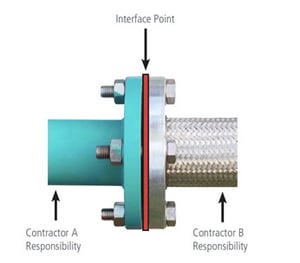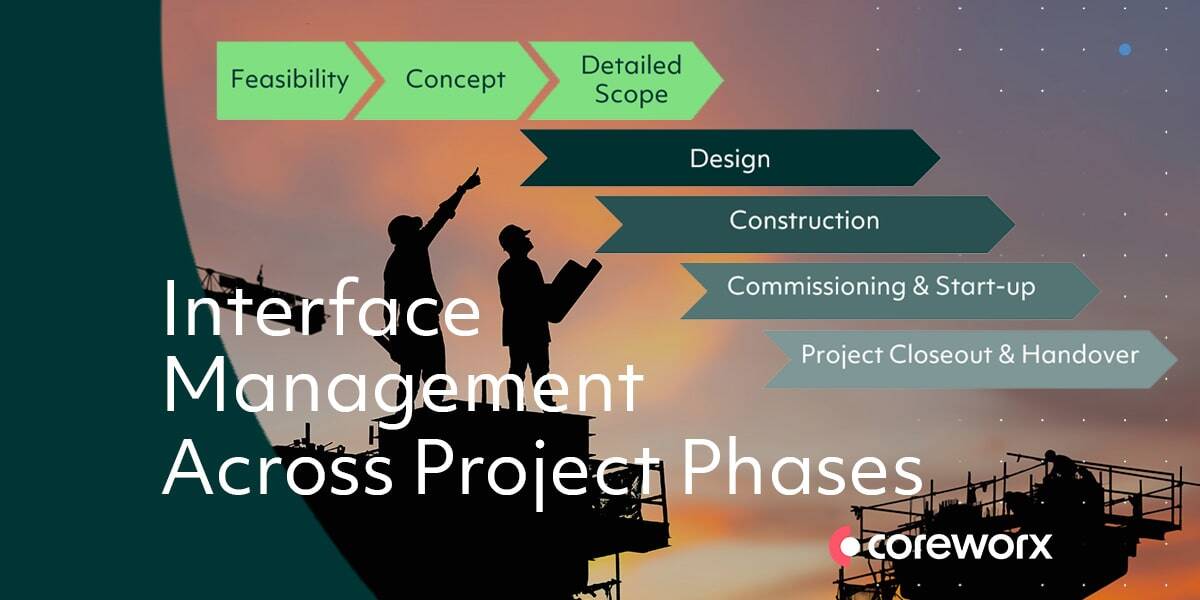
Overcome Poor Communications that Lead to Design Conflicts
Studies have indicated that ineffective communication has a negative impact on project execution. In fact, studies have shown ineffective communication to be a primary contributor for project failures 1/3 of the time and had a negative impact on project success more than half the time. (www.pmi.org) And although these data points aren't news to project professionals, managing communications has remained a challenge for projects. But, the good news is that advancements in tools and processes, such as interface management, are proving that communication issues on projects can now be effectively mitigated and related issues, such as design conflicts, can become a problem of the past.
Major capital projects in today’s engineering and construction market are complex. The size of projects has grown. The number of participants has grown and those participants often span global locales. The processes of detailed design and construction now often overlap, increasing the complexity even further. As the complexity of projects increases, so does the complexity of the project’s communication plan – the plan that defines how all communication in all shapes and sizes and across all stakeholders will be managed throughout the project.
As noted above, managing communication is essential to project success – we know that. How do you manage all the information and related processes on projects that span years and involve hundreds, and even thousands of people? How do you proceed with the confidence that stakeholders are kept informed and that they are aligned to a common goal? That decisions are being made with all the right information and in conjunction with other affected stakeholders in mind? Can you really rely on emails, phone calls, and spreadsheets to effectively manage all communication? As the project manager or sponsor, how do you identify potential failures in the communication process?
As more and more companies are coming to find, a key practice to improving communication challenges on projects lies in both the process of interface management and the tools that enable it. Interface management formalizes all communications, information exchanges, and responsibilities related to project interfaces.
 An interface is defined as a point where two systems, subjects, organizations, etc. meet and interact. For physical or hard interfaces, this is the point or boundary where the responsibility transfers from one party to another. Soft interfaces, such as environmental or regulatory, typically involve information exchange between parties, ensuring various permits are in place and compliance with regulatory requirements are met. When managing interfaces, it is important that the efforts of all parties be combined in a collaborative way to ensure the components of the interface work together cohesively to avoid design conflicts and complete each interface successfully; which in turn results in completing the project more successfully.
An interface is defined as a point where two systems, subjects, organizations, etc. meet and interact. For physical or hard interfaces, this is the point or boundary where the responsibility transfers from one party to another. Soft interfaces, such as environmental or regulatory, typically involve information exchange between parties, ensuring various permits are in place and compliance with regulatory requirements are met. When managing interfaces, it is important that the efforts of all parties be combined in a collaborative way to ensure the components of the interface work together cohesively to avoid design conflicts and complete each interface successfully; which in turn results in completing the project more successfully.
The Construction Industry Institute’s Interface Management study revealed that interface management was recognized as a process back in the 1950s – so not a new idea. However, without a tool to support the more complex projects that needed interface management, the process was not practical on these complex projects. Even with the advent of spreadsheets to help manage interfaces, the process was not making a significant difference to project results.
A key element missing from early interface management tools was the ability to associate all interface communication and activity to the project’s schedule, scope, and cost (i.e., the ‘heart’ of the contract). Are interface deliverables aligned to the schedule? Do the interface agreements between interfacing parties fall within their contract scope? Who’s monitoring cost? This was a critical weakness. Communication related to project interfaces, whether internal or external, must take into consideration these three key factors; without them, you have little chance of improving the project’s outcome.
With solutions on the market today, improving communications on projects by implementing interface management is now a practical reality and offers many advantages to projects – including the ability to help define who is responsible for what at each project interface and thus minimize design and system integration issues. These advanced communication systems ensure collaboration on interfaces and offer project teams the following invaluable features & benefits:
Scope Delineation
Clear scope delineation achieved through the use of interface points to define scope split and/or interaction boundaries (who needs to interface with who).
Oversight & Transparency
All team members and stakeholders have full oversight through access to document status, reports, and dashboards, whether they are directly involved with the interface or not.
Ensured Collaboration
Interface agreements document the exchange of information and deliverables between two parties. In addition, when a deliverable is sent to a requestor by the responding party, the requestor must acknowledge the deliverable is adequate before the interface can be closed.
Risk Managed Across Project Phases
The ability to manage communication related to interfaces across all phases of a project; this ensures information used to make key decisions and activities managed in previous phases is available to parties responsible for future phases.
Schedule Integration
Interface activity and deliverables can be linked to the project schedule.
Change Management
Be alerted to interface-related potential change to the contract price, scope, or schedule
In this day and age, projects should not fail due to poor communication. Interface management is a proven discipline to help manage the communication and collaboration between contracting parties working on the same project. Equipping teams with interface management best practices and an automated solution to support this process is a sure way to help minimize the risk of design conflicts between project stakeholders and help keep projects on time and on budget.
If you're looking to learn more about interface management and the benefits it provides complex capital projects, check out our "What is Interface Management" webinar series





